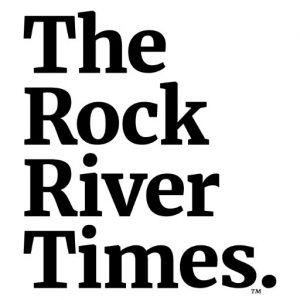
I went to hear Dr. Omar Ali speak at the Schomburg Center for Research in Black Culture in Harlem recently. Schomburg is considered one of the foremost institutions of its kind, with an extensive collection documenting the history and culture of peoples of African descent. Ali, an associate professor at University of North Carolina, Greensboro, was there to present his latest book, In the Lion’s Mouth: Black Populism in the New South.
In his opening remarks, he told the audience the book would not have been possible absent his experience working as an independent political organizer.
Ali said being an independent activist had allowed him to see things differently so that when, as a graduate student, he approached the subject of black political history in America, he saw gaps in the existing scholarship and unattended clues. He then began a process to uncover and piece together the largely unknown and untold story of Black Populism in America — the largest independent black political movement prior to the civil rights movement.
In the Lion’s Mouth provides, in vivid detail, a road map of this post-Reconstruction independent political movement for economic and political reform that paralleled, and at times crossed paths with, the better-known white populist movement, forming tactical coalitions with it and venturing into electoral politics.
Omar’s book is already influential. Charles Postel, the author of The Populist Vision, which won the Bancroft Award — the most prestigious award given for works of historical scholarship — drew upon Ali’s pioneering work in his reshaping of the history of populism in the late 19th century.
When it comes to independent voters and their location in American politics, a lot of people are seeing things in a new way. That’s because the American people — all of us — are collectively going through the experience of the country becoming more independent, whether we’re affiliated with a party or not, active politically or never voted. One impact of that process is that what was once considered conventional wisdom, becomes questioned.
Take, for example, a recent piece in the Wall Street Journal titled “New Law on Ethics May Face Challenge.” It reports about a controversy in New York surrounding who would be allowed to serve on a newly-formed ethics body with the power to investigate state officials who run afoul of ethics rules.
The fact that power on the board was divvied up evenly between Republicans and Democrats raised sharp objections from leading First Amendment scholars and constitutional lawyers prompting them to warn that the ethics body may be destined for legal challenges in federal court if the possibility for independents to serve on it were eliminated.
Where once an equitable power sharing arrangement between Democrats and Republicans would be welcomed and applauded as fair, it has become suspect. That’s the power of a 40-year trend toward political independence (38 percent of Americans now consider themselves independent) making itself felt and allowing things to be seen in new and unexpected ways.
Floyd Abrams, the preeminent First Amendment lawyer, told the Wall Street Journal in connection with the ethics controversy and the failure to include independents, “When one is stripped of the opportunity to serve in government, it violates the first principle of the First Amendment, which protects all citizens in their ability to comment about and participate in the political process.”
For many years, independents were simply considered voters who wanted to drop out of the political process. After all, they had abandoned the two major parties. This was seen as equivalent to abandoning their right to participate. If becoming an independent meant you didn’t get the same privileges as members of a major political party, so what?
That someone of Abrams’ caliber now sees independent voters as a protected class, entitled to legal and Constitutional protections, is a breakthrough and something independent voter activists have been pushing for a very long time. In fact, IndependentVoting.org has begun a campaign involving independents across the country to press Congress to hold hearings on the second-class status of independents. Among the issues Congress is being asked to look into is the exclusion of independents from the Federal Elections Commission, Boards of Elections and other state and local bodies that administer elections. Abrams’ observation adds muscle to that effort.
For Congress to hold these hearings would be an even bigger breakthrough. A serious exploration of the second-class status of independents would shine a light and bring attention to the myriad ways America’s political process has become degraded by partisanship. It may help those in the business of governing see new things and provide more innovative solutions to the problems we face. That’s something the American people would readily support.